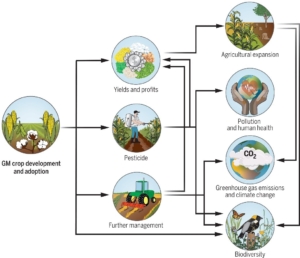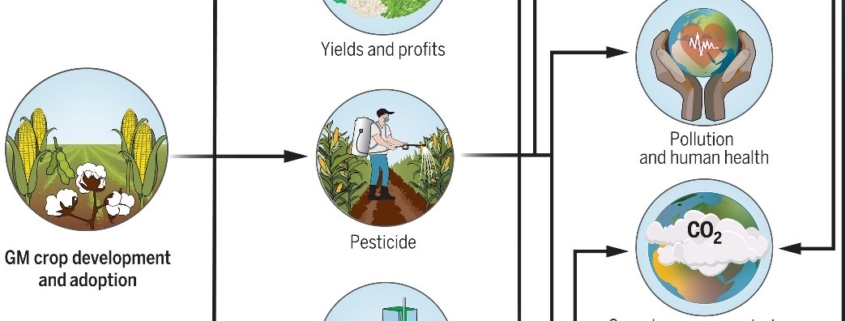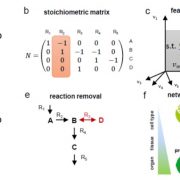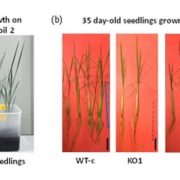Review: Genetically modified crops and their multifaceted impact on the environment
 The development of genetically modified (GM) crops aims to improve agricultural yields in the field. However, their incorporation into agricultural systems is complex, as regulations and acceptance vary globally. While some countries embrace GM crops with herbicide and insect resistance traits, others remain cautious due to concerns about environmental and societal impacts. A recent review by Noack et al. in Science explores both the direct and indirect consequences of GM crop adoption on the environment, including effects on deforestation, human health, pesticide use, and biodiversity. The authors specifically consider the environmental impacts in both adopting and non-adopting countries to provide a global perspective. They note that while GM crops often increase yields, their effects on other environmental factors are complex and context-dependent. A major determinant of their environmental impact is how they are integrated into broader agricultural systems. The authors also highlight the limitations of current studies, which mainly focus on two traits: herbicide tolerance and insect resistance. Broader adoption of GM crops with traits like abiotic stress tolerance could present clearer environmental benefits. Lastly, this review underscores the complexity of GM crop adoption on a global scale and highlights the need for powerful modelling tools for a realistic assessment of their impact on the environment. These could offer the necessary scientific data to make informed decisions on the adoption of GM crops to combat climate change. (Summary by Thomas Depaepe @thdpaepe). Science 10.1126/science.ado934
The development of genetically modified (GM) crops aims to improve agricultural yields in the field. However, their incorporation into agricultural systems is complex, as regulations and acceptance vary globally. While some countries embrace GM crops with herbicide and insect resistance traits, others remain cautious due to concerns about environmental and societal impacts. A recent review by Noack et al. in Science explores both the direct and indirect consequences of GM crop adoption on the environment, including effects on deforestation, human health, pesticide use, and biodiversity. The authors specifically consider the environmental impacts in both adopting and non-adopting countries to provide a global perspective. They note that while GM crops often increase yields, their effects on other environmental factors are complex and context-dependent. A major determinant of their environmental impact is how they are integrated into broader agricultural systems. The authors also highlight the limitations of current studies, which mainly focus on two traits: herbicide tolerance and insect resistance. Broader adoption of GM crops with traits like abiotic stress tolerance could present clearer environmental benefits. Lastly, this review underscores the complexity of GM crop adoption on a global scale and highlights the need for powerful modelling tools for a realistic assessment of their impact on the environment. These could offer the necessary scientific data to make informed decisions on the adoption of GM crops to combat climate change. (Summary by Thomas Depaepe @thdpaepe). Science 10.1126/science.ado934










